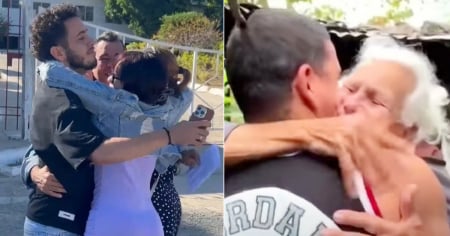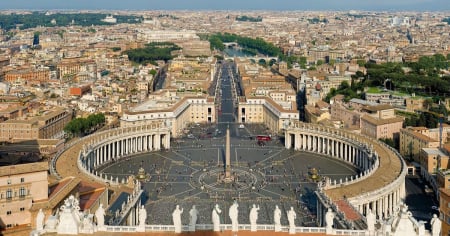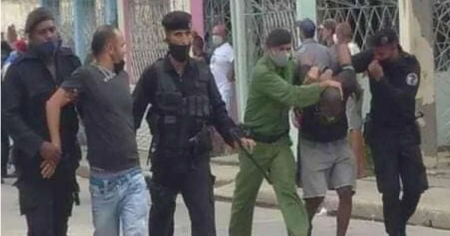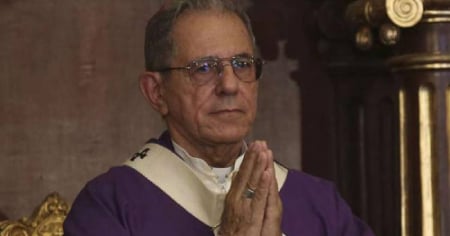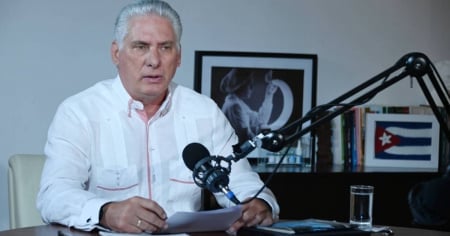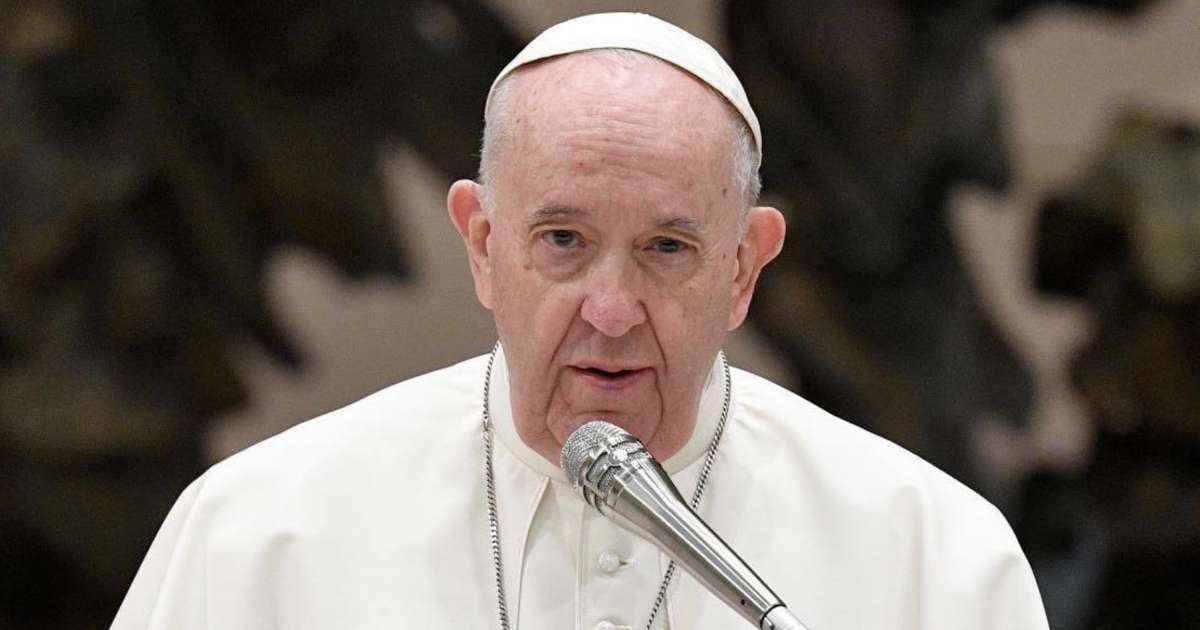
Related videos:
Pope Francis described the recently announced release of prisoners by the Cuban Government, following a Vatican-mediated agreement, as "a gesture of great hope."
From the St. Peter's Square, the pontiff spoke about this topic during the Sunday Angelus prayer.
"Several days ago, the release of a group of detainees in Cuban prisons was announced. This is a gesture of great hope that fulfills one of the intentions of this jubilee year," the Pope stated to the faithful who were listening to him.
Francisco also expressed his desire for similar initiatives to be extended to other countries in the coming months.
Release of political prisoners in Cuba
The Cuban government announced that it will release 553 inmates as part of an agreement with the Vatican, coinciding with the United States' decision to remove Cuba from the list of state sponsors of terrorism, following mediation by the Holy See.
This announcement is the first of its kind since 2019, when Cuba granted clemency to more than 2,600 prisoners. However, several human rights organizations have raised questions about the process.
The Cuban Observatory of Human Rights (OCDH) reported that, so far, only between 40 and 50 of those released are considered political prisoners, while the rest are common prisoners. According to the OCDH, this lack of proportionality could violate the agreements reached with the Vatican.
On its part, Justicia 11J criticized the lack of transparency in the releases and demanded that the Cuban Government publish the names of those freed and the reasons for their sentences.
"The trend is concerning," noted the OCDH in a statement, warning about the possibility that individuals detained for exercising human rights may not be prioritized.
Political and Social Context in Cuba
Prisoners Defenders documented that by the end of 2024, there were 1,161 political prisoners in Cuban jails. Almost half are related to the protests of July 11, 2021, the largest demonstrations against the regime in decades.
The Cuban government denies having political prisoners and claims that those convicted for the events of July 11 committed crimes such as vandalism and public disorder.
Although the releases generate hopes, the questions regarding their scope and transparency reflect the complex reality of Cuba, where political and social tensions continue to shape the daily life of the island.
In recent days, the release of political prisoners in Cuba has made headlines both on the island and abroad. This event, linked to international negotiations, has sparked a variety of reactions.
The Cuban Regime claims that its action is due to the celebration of a jubilee, but it has been directly linked to an agreement reached following the decision of the U.S. president Joe Biden to remove Cuba from the List of State Sponsors of Terrorism.
On January 15, the Vatican issued a statement regarding this, expressing its satisfaction with the release process. The statement emphasizes the role of diplomacy in the efforts to achieve the release, setting a precedent in international dialogues about human rights on the island.
On January 17, the regime reported that, up to that moment, 127 people had been released. However, this figure includes both political prisoners and common inmates, which has led to criticism and accusations of manipulation from opposition organizations and international observers.
More recently, on January 20, it was confirmed that more than 100 political prisoners have been released, although official figures remain a topic of debate. The lack of transparency in the process has been identified as a barrier to assessing the authenticity and scope of these measures.
Frequently Asked Questions about the Release of Prisoners in Cuba and the Role of Pope Francis
What role has Pope Francis played in the release of prisoners in Cuba?
Pope Francis has been a key mediator in the agreement for the release of prisoners in Cuba, describing the gesture from the Cuban government as "a gesture of great hope." This agreement also coincides with the celebration of the Ordinary Jubilee of 2025, promoted by the Pope, which emphasizes reconciliation and forgiveness.
How many prisoners will be released in Cuba and how many are considered political prisoners?
The Cuban government announced the release of 553 prisoners, but according to the Cuban Observatory of Human Rights (OCDH), only between 40 and 50 of them are considered political prisoners. The lack of transparency and the proportion of political prisoners among those released have been questioned by various human rights organizations.
How has the international community reacted to the release of prisoners in Cuba?
The international community has shown a mix of skepticism and hope. Organizations like Amnesty International have demanded the total release of all political prisoners. The Joe Biden administration has also played a role by removing Cuba from the list of state sponsors of terrorism, which has been seen as a gesture to facilitate these releases.
What criticisms have been made about the process of releasing prisoners in Cuba?
The main criticisms focus on the lack of transparency and the proportion of political prisoners released. Organizations such as Justicia 11J have demanded the publication of the names of those released and the reasons for their sentences, while the OCDH has raised concerns about potential violations of the agreements reached with the Vatican due to the low proportion of political prisoners among those released.
Filed under:

